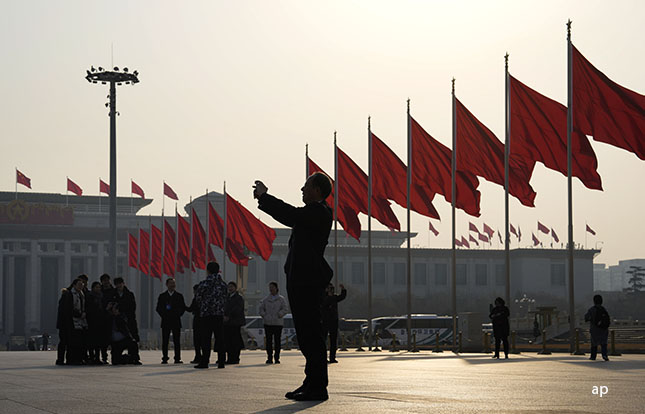Kate Lin: The Chinese stock market is continuing to fall, mainly because of the disappointing economic recovery and the ongoing property debt crisis. Even supporting measures like sovereign money injections showed little effect in propping up the market. Today we are looking at China equities in funds with Bryan Cheung, our associate director for manager research. Bryan, are investors still selling on China funds? Tell us about the recent fund flows.
Outflows Worsened
Bryan Cheung: Sure, Kate. So yeah, as you mentioned, you know, China equity market has actually fallen by more than 50% from a peak level in January 2021 already. So if you look at the recent news headlines, it's been reported that global investors have been cutting their China equity exposure and the outflows from China equities, including the A-share market, have increased in recent months. And if you look at our Morningstar data, the net outflows from Greater China equity funds and ETFs globally have continued to increase since Q2 and the net outflows in Q3 was over US$7 billion. Of course, we don't know how the flows would change, but what we know is that the sentiment against China equity is pessimistic. Nonetheless, as a long-term investor, history taught us that the best time to invest is often when markets are bearish because the assets are cheap, and that's when you can find good bargains. Risk and opportunities, they go hand-in-hand.
Morningstar's Allocation Views
KL: Well, the sentiment is, of course, subdued. But what about Morningstar? Tell us about our allocation views on China stocks.
BC: Sure. We think there are merits for China equity to be a contrarian opportunity. First, the sentiment is poor. Expectations are low with sustained selling pressure, but the valuations are attractive. If you look at the forward PE of China equity, they are among the lowest versus the major EM countries, implying a better return potential in the longer term. And for the near term, confidence needs to improve for investor interest to return, which could take some time. Nonetheless, the government is still pro-growth to reach its GDP growth target. While much of the negative news is likely in the price, it's always difficult to time the market's inflection point. So we think investors should try to prepare rather than to predict the broad market movements.
And second, we should remind ourselves that China worries are not something new. Every few years, there would be something for the market to panic about. For example, back in 2015, that was the Chinese economic weakness and a stock market crash. And then in 2018, we faced a trade war between the US and China. And the latest headline, of course, was on the Japanification of China on the back of an aging population, financial leverage in the economy, and a growth slowdown. But there are differences between China today and Japan in around 1990. For example, Japan was already a developed economy, while China is not. China's GDP growth is still at a decent pace versus major developed economies. And importantly, the growing middle class will continue to present interesting opportunities for investors, unlike the stock market in Japan around the late '80s, where there was a bubble. But today in China, that isn't a stock market bubble.
For economic and policy shifts, they should definitely form part of our investment considerations. But they don't necessarily make them market and investable, right? So these shifts teach us to be ready when evaluating investments and try to apply a margin of safety.
Siding with Quality Managers and Quality Companies
KL: And at this point, with all the headlines and risks and concerns, how should investors approach China equities in their portfolios?
BC: Yes. So we think risk management is paramount. So as I mentioned, valuation is attractive, but also we are cognisant that, of a slower growth environment in China and a more complex geopolitical and economic risk, hence there's also the potential tail risk that investors should try to manage. But again, the developments and outcomes from all these macro developments are unknowable, right? So you can have a view on macro events, but betting on it is another thing because you need to know the probability, how much you want to bet and when do you want to bet. So what we can do is to manage this risk by keeping portfolio exposure to Chinese equities at a sensible level while considering topping up on weakness with a long-term mindset.
KL: So for investors who can think with a long-term mindset, like you said, what should they do with mutual funds?
BC: Yes, it's very important to be selective, in our view, in a case for investors investing in China equity through mutual funds. We want to stick to quality managers who have navigated through market cycles successfully. So we have heard from some time-tested managers recently that the broad de-rating in Chinese equities has actually provided them with long-term opportunities. And it's even more important now to understand the quality of a company in terms of both its financials and management, given that, in a lower growth backdrop, companies that have solid competitive advantages and can adapt to this changing business landscape, for example, those that are able to manage costs efficiently, have prudent capital allocation plan and are able to deliver a sustainable earnings growth over time will be very important. And in short, I would say be disciplined in your allocation, stick with quality managers, think long term and stay calm.
KL: This is very insightful. Thank you. For Morningstar I am Kate Lin.





























